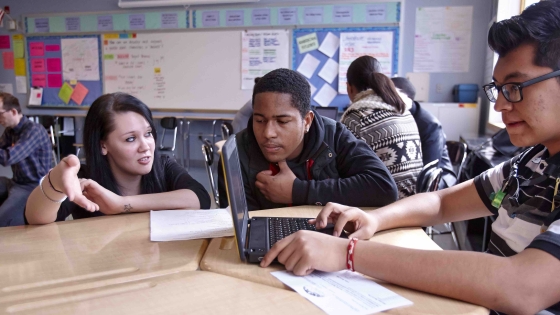About Efforts to Integrate Computational Thinking Into Elementary Schools
As technology advances and embeds itself further in daily life, educators are increasingly seeking to help students develop “computational thinking” (CT) as one way to prepare them for success in school and beyond. Computational thinking is a problem-solving approach that draws on concepts fundamental to computer science. The skills and practices of computational thinking include abstraction, decomposition, pattern recognition, and testing and debugging, as well as understanding the capabilities of computers, formulating problems to be addressed by a computer, and designing algorithms that a computer can execute. While most directly relevant to computer science education, these skills are also thought to be applicable in a wide range of other contexts and academic disciplines.
Despite the recognized importance of computational thinking and literacy across fields and occupations, access to CS education is unequally distributed, with large disparities linked to race, gender, poverty, English Language proficiency, and disability status. School-wide integration of CT across multiple grades and subjects at the elementary school level is a promising approach to developing CT skills and competencies and increasing the participation of traditionally underrepresented groups in CS education.
About the Study
CT Readiness for All is a collaboration of EDC’s Center for Children and Technology, the Research Alliance for New York City Schools, and professional development provider Kelly Powers. The project will field-test a self-assessment tool designed to help elementary schools create CT integration plans and support the provision of equitable access to CT education for students from traditionally underrepresented groups.
The project builds on two prior studies of CT integration in underserved urban elementary schools by EDC and the Research Alliance, with prior funding by the Robin Hood Learning + Technology Fund and the National Science Foundation.
Working with schools in New York City and several other locations, the study will examine whether the following strategies help schools build computational thinking skills and competencies and broaden participation in CS education:
- Focusing on CT integration across subjects and grades at the elementary school level to develop students’ interest in CS;
- Supporting school leaders and teachers in planning for the systematic integration of CT across multiple grades, subject areas, and types of classrooms to ensure that diverse students have access to meaningful CT learning; and
- Providing school leaders and teachers with professional development on CT integration, with a particular focus on equitable and culturally responsive approaches.
In addition to establishing an evidence base for the CT Integration Framework, CT Readiness for All will develop resources intended to support scalable and sustainable integration of CT at the elementary school level.
This project is funded by the National Science Foundation (grant # 2219314).
For more about integrating Computational Thinking, check out:
- Computational Thinking for an Inclusive World from Digital Promise (see page 43-44 for highlights from our integration framework and self-assessment tool).
- Understanding Barriers to School-Wide Computational Thinking Integration at the Elementary Grades: Lessons from Three Schools in the ACM Digital Library.
- Diverse Approaches to School-Wide Computational Thinking Integration at the Elementary Grades: A Cross-Case Analysis in the ACM Digital Library.
Project Team
Cheri Fancsali, Research Alliance for New York City Schools
Heather Sherwood, EDC (Principal Investigator)
Babette Moeller, EDC
Kelly Powers, PD Provider

